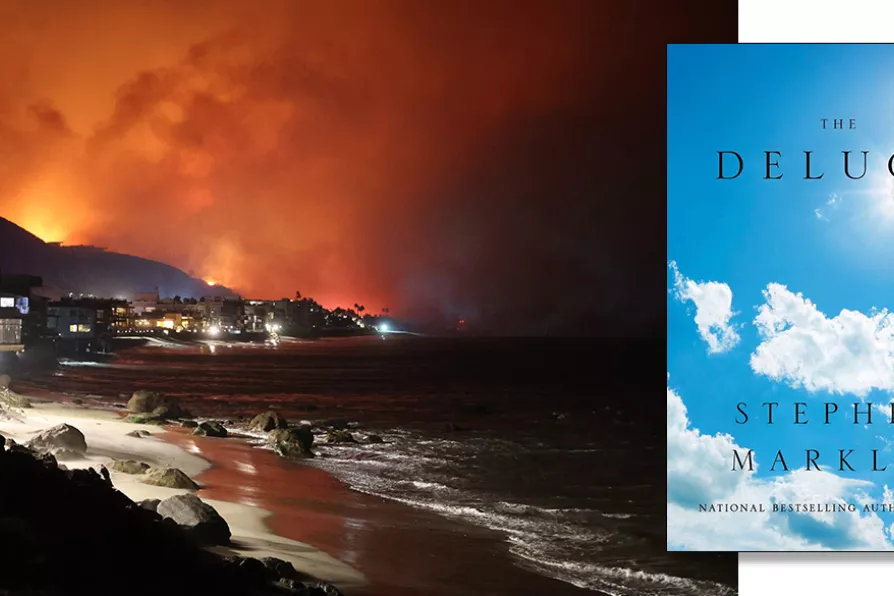The Bard stands with the Reformers of Peterloo, and their shared genius in teaching history with music and song

 The Palisades Fire that started in the City of Los Angeles, January 2025
[CAL FIRE_Official/CC]
The Palisades Fire that started in the City of Los Angeles, January 2025
[CAL FIRE_Official/CC]
“THE Los Angeles megafire... began life as four separate fires... hydrants went dry, and the fire leaped from unprotected home to unprotected home until entire neighbourhoods went up, and the firefighters were forced to retreat.” The evacuation of the city was ordered. “The sound was deafening, a freight train roar. Trees candling, grasses smouldering,” noted one eyewitness.
This isn’t a news report about the fires that ravaged Los Angeles in January but a terrifyingly prescient passage from Stephen Markley’s astonishing 2023 novel The Deluge (Simon & Schuster, £17.99). Nearly 900 Bible-thin pages long, it’s a beast of a book. As well as being a blisteringly brilliant read, I can confidently say it’s one of the most important books I’ve ever read.
With the action stretching from 2013 to the late 2030s – Los Angeles burns to the ground in 2031 – Markley’s magnum opus follows a cast of characters as the United States and the wider world confronts the ever worsening climate and ecological crisis. There is Tony Pietrus, a curmudgeonly scientist trying to raise the alarm, charismatic climate activist Kate Morris, and Ashrin, a neurodivergent mathematician/government adviser, along with a radicalised eco-saboteur, an advertising executive, and an actor turned power-hungry religious zealot.














